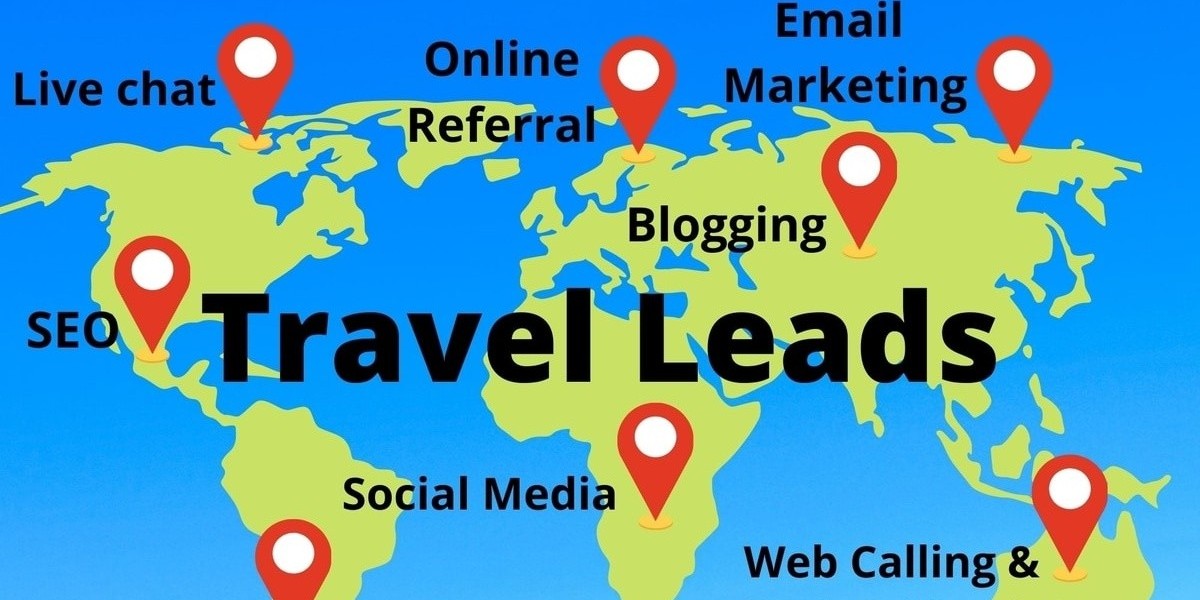In today’s rapidly evolving travel landscape, securing high-quality leads for travel agents is not just beneficial—it’s absolutely essential. With more travelers seeking personalized experiences and digital platforms making competition fiercer than ever, travel agents must focus on attracting, nurturing, and converting leads to remain profitable and relevant.
This article explores strategic methods to generate consistent, high-quality leads for travel agents while highlighting tools, platforms, and best practices that can propel agencies toward sustained growth.
Why Travel Leads Are the Lifeblood of the Industry
For travel agents, leads are not just names on a list—they’re potential clients with real desires for adventure, relaxation, or business travel. However, the key lies in identifying not just any leads but the right ones—those who are more likely to convert into loyal clients.
Generating leads gives travel agents:
A continuous sales pipeline
Opportunities to offer customized packages
The ability to build long-term client relationships
A chance to grow brand recognition in a saturated market
Understanding how to attract, qualify, and retain these leads is the difference between a stagnant agency and a thriving one.
Understanding Your Ideal Travel Client
Before diving into lead generation strategies, travel agents must define their ideal client persona. Is your agency targeting luxury honeymooners, corporate travelers, budget backpackers, or family vacationers?
Knowing your niche helps in:
Crafting targeted marketing messages
Selecting the right advertising platforms
Offering personalized travel solutions
Minimizing wasted time on unqualified leads
By refining your audience, your efforts become more efficient and more effective.
Top Strategies to Generate Leads for Travel Agents
Let’s look at proven strategies that help travel agents find and attract qualified leads.
1. Build a Conversion-Optimized Website
Your website is your digital storefront. Make sure it’s designed to convert visitors into leads by:
Displaying clear calls-to-action (CTAs)
Including lead capture forms (e.g., “Get Your Free Travel Consultation”)
Offering valuable content (e.g., travel guides, packing lists)
Using live chat to engage visitors in real time
A well-structured site increases credibility and encourages inquiries from curious travelers.
2. Utilize Social Media Advertising
Platforms like Facebook, Instagram, and TikTok allow travel agents to showcase dreamy destinations and exclusive deals while targeting specific demographics.
Try:
Running geo-targeted campaigns
Using lead ads to collect contact details directly
Sharing client testimonials and trip highlights
Posting consistent, visually engaging content
Social media advertising not only generates leads but also builds brand familiarity and trust.
3. Offer Lead Magnets
People are more willing to provide their contact info in exchange for value. Create lead magnets tailored to your niche, such as:
Free destination eBooks
Travel budget planners
Custom itinerary templates
Entry into a trip giveaway
These resources should be gated behind a simple email signup form on your website or landing pages.
4. Partner with Influencers or Local Businesses
Collaborate with travel influencers, wedding planners, hotels, or even coworking spaces to reach new audiences.
These partnerships can help:
Drive referral traffic to your site
Access pre-established, trust-based communities
Generate buzz around special promotions or events
Ensure that your partners align with your brand image and values to attract the right kind of leads.
5. Optimize for Local SEO
Local travelers often search online for nearby travel consultants. Make sure your business:
Appears on Google Business Profile
Is listed in travel-related directories
Uses location-specific keywords like “travel agent in New York”
A strong local SEO strategy ensures you're visible to those actively seeking your services in your area.
Nurturing and Converting Your Travel Leads
Generating leads is only the first step. Converting them requires trust, responsiveness, and a deep understanding of their needs.
1. Use Email Marketing Campaigns
Email remains one of the highest ROI channels for travel agencies. With it, you can:
Send personalized trip suggestions
Share special offers or last-minute deals
Provide planning tips based on their interests
Use tools like Mailchimp, ActiveCampaign, or ConvertKit to automate follow-ups and segment your list.
2. Host Webinars and Virtual Consultations
Virtual events are a great way to establish authority while collecting leads. Try:
Destination spotlight webinars
Travel safety Q&A sessions
Live itinerary planning calls
This interactive approach builds trust and allows you to address objections in real-time.
3. Implement a CRM System
A Customer Relationship Management (CRM) tool helps you:
Track lead sources
Manage communication history
Schedule follow-ups
Score and prioritize hot leads
Popular CRMs like HubSpot, Zoho, and TravelJoy are tailored to service-based industries and can significantly boost your conversion rate.
Common Mistakes Travel Agents Make with Leads
Even the best lead generation efforts can falter if not managed properly. Avoid these common pitfalls:
Ignoring follow-ups: Most leads need multiple touchpoints before converting.
Overlooking personalization: Generic messages won’t resonate—tailor your communication.
Failing to segment leads: Treating all leads the same can result in lost opportunities.
Neglecting mobile users: Make sure your website and forms are mobile-friendly.
Addressing these mistakes can drastically improve your lead-to-client conversion rate.
The Future of Lead Generation in the Travel Industry
As technology advances and traveler expectations evolve, travel agents must adapt. Artificial intelligence, predictive analytics, and virtual reality are already changing the way people explore destinations online.
Future-forward agencies will:
Use AI to tailor recommendations
Employ data-driven insights to predict travel trends
Integrate chatbot assistants to qualify leads 24/7
By staying agile and embracing innovation, travel agents can stay ahead of the curve—and their competition.
Conclusion: Turning Leads into Loyal Travelers
Leads for travel agents are more than just names and emails—they’re the beginning of meaningful client relationships that can last a lifetime. By adopting a strategic approach to lead generation and nurturing, travel professionals can create a robust pipeline that drives consistent business and allows them to stand out in a crowded marketplace.
As the travel industry continues to evolve, so too should the methods for finding and converting leads. The agents who embrace change, leverage technology, and prioritize relationship-building will be the ones who don’t just survive—but thrive.






